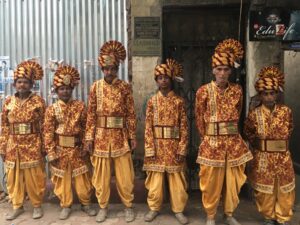By ALICE GUTHRIE
This essay is an introduction and translator’s note excerpted from From Blood Feast: The Complete Stories of Malika Moustadraf, out now from the Feminist Press.
Malika Moustadraf (1969–2006) lived, worked, and died in the major port city of Casablanca, on the Atlantic west coast of Morocco. She published just one novel, a single short story collection, one other short story, and a few articles during her short life. After her death, three more short stories were published in a literary magazine. The short story collection and the four subsequent stories are what make up Blood Feast, the first ever full-length translation of her work. This slim volume is but a snapshot of a gifted maverick writer in her ascendancy, creatively going from strength to strength even as her health deteriorated during the final weeks before her death. Had her life not been tragically cut short, Moustadraf would undoubtedly have gone on to reach great artistic heights. In 2022 she would have been just fifty-three, eight years older than me. I would have certainly visited her in Casablanca over these last six years since I’ve been reading and translating her work, and would have gotten to know her. We would have spent time hanging out in her favorite café, working through the innumerable fascinating linguistic and cultural questions any serious literary translation project generates. Perhaps we would have enjoyed ranting to each other about the patriarchy, exchanging music, making each other laugh? And surely, by now, she would have become more widely respected and less persecuted for her feminist activist sensibility than she was at the turn of the millennium. But she did die in 2006, and so this modest oeuvre is all we have—the culmination of her life’s work, all but lost to the world over the last fifteen years since her untimely death.















